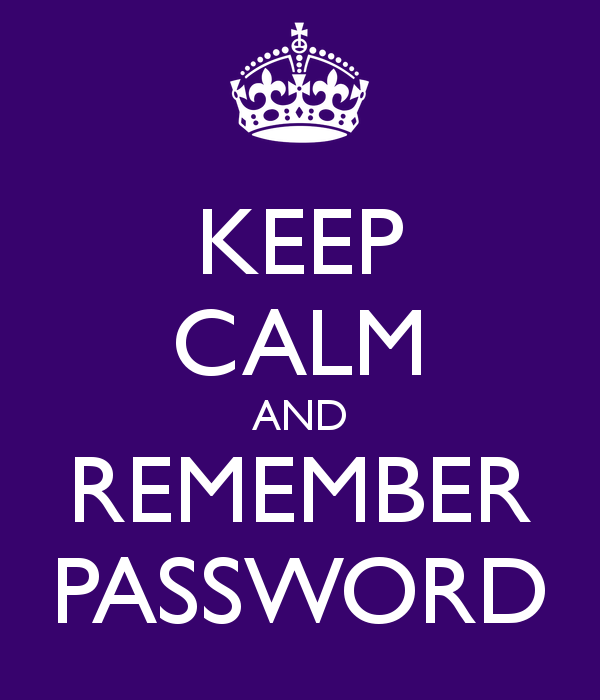How to create awesome passwords
Posted by: easypccare.co.uk - High Wycombe on 16th February 2014 @ 15.30
 |
Many people moan about passwords and they can certainly be a cause of stress if you forget your password.
After all we live so much of our lives online these days - from banking to dating - and need to protect hundreds of different applications
and services, how is it possible to remember so many different symbols and combinations?
In order to avoid being locked out of their eBay account or being unable to access Facebook, most users opt for the easy route and use the same password for everything. And it's likely that they adopt the same approach in the work place. We can be pretty laissez-faire when it comes to keeping our password a secret, some of us even write it down on a post-it note on our desk. Or we will happily share it with a colleague who is having trouble getting access to an application. |
Make passwords long and complex
Try to make your password more than 12 characters and use at least one lower case character, one upper case character, one number, and one special character. Shamefully, not all sites have enabled this yet, so it may not always be possible, but do it where you can. Try stringing unconnected words together and mixing up the letters, numbers and special characters to make them extra hard to guess.
Don't reuse passwords
It is very difficult to remember unique passwords across everything. You can tackle this by using a service like LastPass, which securely stores your passwords. All you need to remember is the password for your LastPass account. If you do reuse passwords across sites, be vigilant for any suspicious activity and at the first sign of trouble, change the password on any other sites where it was used.
Regularly change your password
Passwords should be changed every 8-12 weeks. Yes, it's a hassle, but if an attacker has gained access without you knowing, it stops him from being able to keep coming back over and over again.
Two-factor authentication
Where possible, favour services that offer two-factor authentication and enable it. The way this typically works is that it combines something you know (your password) with something you have (e.g. a generated code sent to your phone) to provide a double layer of protection.
Never use a default password
Many devices and applications come with default passwords set up. You need to change these as soon as possible during your set up process. Using a default password is the same as using no password at all.
We are able to assist security. All you need to do is contact us TODAY!
|
Comment Box is loading comments...
|
- Recent Blogs
